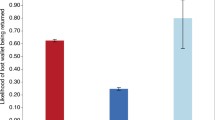Abstract
Professor Etzioni argues that ‘happiness’ is ‘the wrong metric’ as a measure of a good society. He argues from the perspective of Communitarian Philosophy and uses two kinds of happiness evidence. One is correlational results from survey data and the other concerns ‘self-actualization’ as the highest-order need proposed by Maslow. Unfortunately, both kinds of evidence are flawed for this purpose. First, contemporary understanding of happiness allows a different perspective from the one depicted. Second, correlational results from cross-sectional studies cannot be used to conclude causation. Third, the construct of self-actualization has been discredited as having scientific validity. Overall, Etzioni’s argument rests on an outdated conception of happiness and the invalid interpretation of scientific evidence. It is concluded that happiness is the right metric by which to judge a successful society, as long as the nature of measured happiness is understood.
Similar content being viewed by others
Further Reading
Australian Bureau of Statistics. 2014. 6523.0 - Household Income and Wealth, Australia, 2013–14. . Canberra: ABS. http://www.abs.gov.au/ausstats/abs@.nsf/mf/6523.0.
Bentham, J. 1780. An Introduction to the Principles of Morals and Legislation. London: T. Payne http://gallica.bnf.fr/ark:/12148/bpt6k93974k/f2.image.r=.langEN Retrieved 09Sept2014.
Cannon, W. B. 1932. The Wisdom of the Body. New York: Norton.
Cummins, R. A. 1995. On the Trail of the Gold Standard for Life Satisfaction. Social Indicators Research, 35(2), 179–200. doi:10.1007/BF01079026.
Cummins, R. A. 1998. The Second Approximation to an International Standard of Life Satisfaction. Social Indicators Research, 43(3), 307–334. doi:10.1023/A:1006831107052.
Cummins, R. A. 2000. Personal Income and Subjective Well-Being: A Review. Journal of Happiness Studies, 1(2), 133–158.
Cummins, R. A. 2001. The Subjective Well-Being of People Caring for a Severely Disabled Family Member at Home: A Review. Journal of Intellectual and Developmental Disability, 26, 83–100.
Cummins, R. A. 2010. Subjective Wellbeing, Homeostatically Protected Mood and Depression: A Synthesis. Journal of Happiness Studies, 11, 1–17. doi:10.1007/s10902-009-9167-0.
Cummins, R. A., & Nistico, H. 2002. Maintaining Life Satisfaction: The Role of Positive Cognitive Bias. Journal of Happiness Studies, 3(1), 37–69.
Cummins, R. A., Woerner, J., Tomyn, A., Gibson, A., Knapp, T. 2006. Australian Unity Wellbeing Index: Report 16.0 - “The Wellbeing of Australians - Mortgage payments and home ownership”. Retrieved from http://www.deakin.edu.au/research/acqol/index_wellbeing/index.htm.
Cummins, R. A., Woerner, J., Weinberg, M., Collard, J., Hartley-Clark, L., Horfiniak, K. 2013. Australian Unity Wellbeing Index: −Report 30.0 - The Wellbeing of Australians: Social media, personal achievement, and work. Melbourne: Australian Centre on Quality of Life, School of Psychology, Deakin University. http://www.deakin.edu.au/research/acqol/reports/auwbi.php.
Cummins, R. A., Li, L., Wooden, M., & Stokes, M. 2014. A Demonstration of Set-Points for Subjective Wellbeing. Journal of Happiness Studies, 15, 183–206. doi:10.1007/s10902-013-9444-9.
Diener, E., Scollon, C. N., & Lucas, R. E. 2004. The Evolving Concept of Subjective Well-being. The Multifaceted Nature of Happiness. In P. T. Costa & I. C. Siegler (Eds.), Recent Advances in Psychology and Aging (pp. 188–219). Amsterdam: Elsevier Science BV.
Galen, L. W., Sharp, M., & McNulty, A. 2015. Nonreligious Group Factors Versus Religious Belief in the Prediction of Prosociality. Social Indicators Research, 122(2), 411–432.
Hagerty, M. R. 1999. Testing Maslow’s Hierarchy of Needs: National Quality-of-Life Across Time. Social Indicators Research, 46(3), 249–271.
Hammond, T., Weinberg, M. K., & Cummins, R. A. 2014. The Dyadic Interaction of Relationships and Disability Type on Informal Carer Subjective Well-being. Quality of Life Research, 23(5), 1535–1542.
Hanestad, B. R., & Albrektsen, G. 1992. The Stability of Quality of Life Experience in People with Type 1 Diabetes Over a Period of a Year. Journal of Advanced Nursing, 17, 777–784.
Headey, B., & Wearing, A. 1989. Personality, Life Events, and Subjective Well-Being: Toward a Dynamic Equilibrium Model. Journal of Personality and Social Psychology, 57, 731–739. doi:10.1037/0022-3514.57.4.731.
Helliwell, J. F. 2003. Well-Being, Social Capital and Public Policy: What’s New? Economic Modelling, 20(2), 331–360.
Henderson, S. 1977. The Social Network, Support and Neurosis. The Function of Attachment in Adult Life. British Journal of Psychiatry, 131(2), 185–191.
Lawler, E. E., & Suttle, J. L. 1972. A Causal Correlational Test of the Need Hierarchy Concept. Organizational Behavior and Human Performance, 7, 265–287.
Locke, E. A. 1976. The Nature and Causes of Job Satisfaction. In M. D. Dunnette (Ed.), Handbook of Industrial and Organizational Psychology (pp. 1297–1349). Chicago: Rand McNally.
Maslow, A. H. 1954. Motivation and Personality. New York: Harper.
Maslow, A. H. 1970. Motivation and Personality (2nd ed.). New York: Harper.
Mill, J. S. 1863. Utilitarianism, 1st edition. London: Parker, Son & Bourn, West Strand, www.utilitarianism.com/.
Rothbaum, F., Weisz, J. R., & Snyder, S. S. 1982. Changing the World and Changing the Self: A Two-Process Model of Perceived Control. Journal of Personality and Social Psychology, 42(1), 5–37.
Russell, J. A. 1980. A Circumplex Model of Affect. Journal of Personality and Social Psychology, 39, 1161–1178.
Russell, J. A. 2003. Core Affect and the Psychological Construction of Emotion. Psychological Review, 110(1), 145–172.
Sarason, B. R., Sarason, I. G., & Pierce, G. R. 1990a. Social Support: An Interactional View. New York: Wiley.
Sarason, I. G., Sarason, B. R., & Pierce, G. R. 1990b. Social Support: The Search for Theory. Journal of Social and Clinical Psychology, 9(1), 133–147.
Seidlitz, L., & Diener, E. 1993. Memory for Positive Versus Negative Life Events: Theories for the Differences Between Happy and Unhappy Persons. Journal of Personality and Social Psychology, 64, 654–664.
Transparency International. 2016. Corruption Perceptions Index 2015. http://www.transparency.org/cpi2015.
Yik, M., Russell, J. A., & Steiger, J. H. 2011. A 12-Point Circumplex Structure of Core Affect. Emotion, 11(4), 705–731.
Zweig, J. S. 2015. Are Women Happier than Men? Evidence from the Gallup World Poll. Journal of Happiness Studies, 16(2), 515–541.
Author information
Authors and Affiliations
Corresponding author
Rights and permissions
About this article
Cite this article
Cummins, R.A. Happiness is the Right Metric to Measure Good Societal Functioning. Soc 53, 273–277 (2016). https://doi.org/10.1007/s12115-016-0011-y
Published:
Issue Date:
DOI: https://doi.org/10.1007/s12115-016-0011-y




